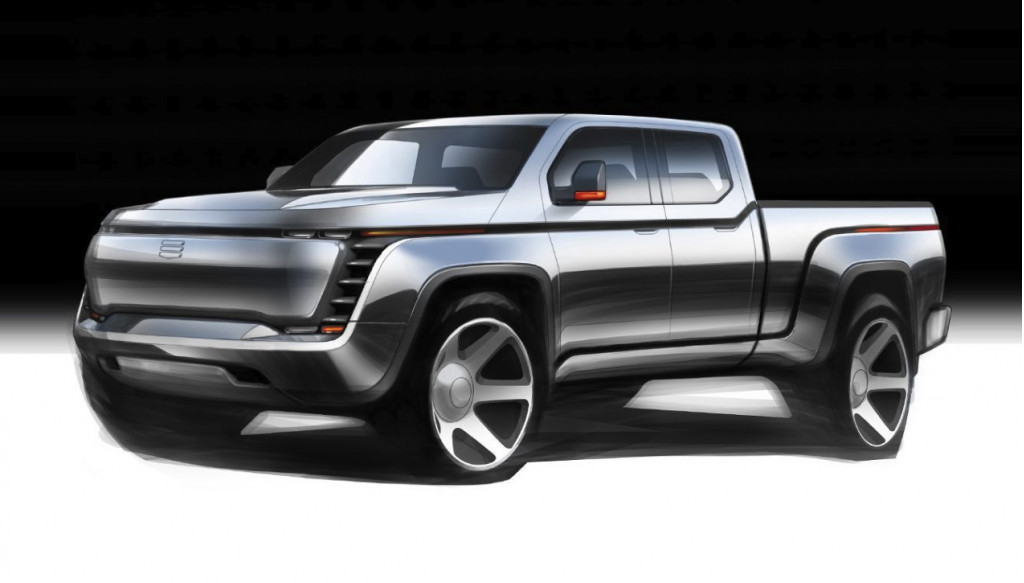Tesla may have swooped in at the last minute and stolen the show in Los Angeles this week, but the ever-frisky Karma has its own pickup pitch: an extended-range EV for commercial applications.
Karma's pitch is a bit less concrete than Tesla's. Rising from the ashes of Fisker, Karma is merely interested in building luxury and high-performance electric cars; it's not nearly as interested in getting its hands dirty.
The pickup project, then, serves as more of a proof-of-concept for a business Karma does want to pursue: consulting and engineering. This teaser is meant as a showcase of what Karma's technology can do for you. And by "you," we mean companies with fleets.
“Karma is more than just a car company,” said Lance Zhou, CEO of Karma. “Karma is a high-tech incubator, and a supplier to others who need our engineering, design, customization and manufacturing resources to speed their product development or make use of our ability to apply luxury touches.”
Karma's powertrains utilize components supplied by BMW, but the final engineering is done in-house. It's this expertise Karma wants to sell, rather than the actual trucks.

Lordstown Motors Endurance
The California-based company isn't alone in targeting the commercial EV market. One of the key points of the recent General Motors-United Auto Workers contract dispute was the fate of its Lordstown, Ohio, production facility. We now know it will be home to Lordstown Motors, whose mission is to sell electric pickups to commercial and fleet customers.
And to make things even more interesting, Lordstown Motors has also licensed BMW's range-extending turbocharged inline-3. It's also similar to the series-hybrid technology Infiniti is banking on for its future models, though Nissan's luxury subsidiary doesn't seem keen on keeping the plug-in components.
